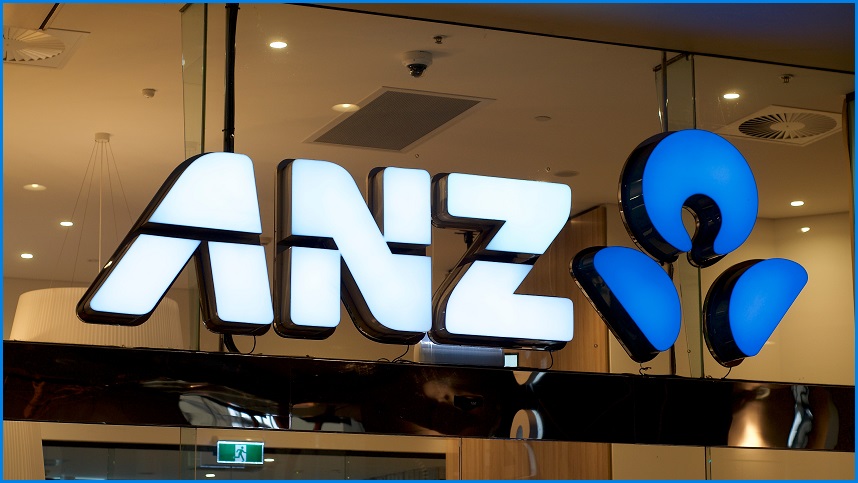ANZ bank has minted its own stablecoin, A$DC, becoming the first Australian bank to create its own cryptocurrency with a value pegged to the Australian dollar.
The ANZ stablecoin was created for the billionaire Smorgon family’s investment firm Victor Smorgon Group which was issued with the 30 million A$DC in February.
Unlike other popular stablecoins, A$DC isn’t available for retail investors and was instead built to facilitate digital asset transactions between wealthy institutional investors.
Stablecoins, as opposed to many crypto assets, algorithmically maintain a consistent value tied to a traditional asset (for example fiat currency and commodities) and typically claim by their issuers to be backed 1:1 with that asset.
ANZ’s new product, although not being given a wide release, is the latest incursion from Australia’s big four banks into crypto and digital assets, and has received mixed reactions from the local emerging fintech and cryptocurrency industry.
For years Australia’s major banks have made it difficult for local digital assets and cryptocurrency companies to do business by freezing or denying them business bank accounts under the auspice of compliance risk.
The phenomenon is called ‘de-banking’ and it’s affected the likes of international payments platforms, fintechs, and crypto companies for years, leading to criticism that banks are hiding behind anti-money laundering and counter-terrorism financing requirements in order to squash competition.
An industry insider who spoke on condition of anonymity to avoid reprisal from the banks, described de-banking as an “anti-competitive” strategy that bought time for banks to spin out crypto products of their own.
“The room is filled with the big players now, they're stealing the lion-share of the voice, while the true innovators are being bullied out,” the insider told Innovation Age, adding that the banks’ power as financial gatekeeper has stifled public criticism against de-banking.
“Everyone is still hoping to get accounts with these banks one day and don't want to ruffle feathers.”
For local crypto startups, the bank-led lockout has flow-on effects, including that other global payments platforms will enforce the policies of Australia’s big four.
“For example, [international money transfer platform] Wise won’t give us an account, so I can’t pay designers in Europe,” the industry insider told Information Age.
De-banking
Of course, ANZ isn’t the only bank dipping its toes into crypto.
The Commonwealth Bank last year launched its own cryptocurrency exchange, tying the service directly into the CommBank app that existing customers use.
And Westpac – which has been mired in its own significant compliance problems – pocketed $288 million through its venture capital arm Reinventure which had a stake in US cryptocurrency Coinbase when it went public on the NASDAQ last April.
A spokesperson ANZ told Information Age that the bank’s “policy is to generally not bank businesses that operate as issuers, dealers or exchanges of digital or crypto-currency as they are outside of our current risk appetite”.
Andrew Porter, the new CEO of industry group Fintech Australia, said he has seen de-banking first-hand.
“I’ve personally been in those meetings with the banks,” Porter told Information Age. “I’ve received letters warning that you have 30 days to wrap up your account.”
He said members of Fintech Australia continue to experience de-banking and has warned that, while there may not be evidence the practice is strictly anti-competitive, it makes Australia an undesirable place for companies to do business.
“It absolutely seems broken,” Porter said. “It’s a very sad state of affairs and is an indictment on Australia as a business destination.
“We want to be a hub for this kind of innovation and industry but unfortunately we see talent leave Australia, businesses go offshore to expand, and overseas companies stay away.”
The government said it wants to fix the issue of de-banking and has ear-marked it among the reform agenda that would take place if it returns to government following the upcoming election.
Silver linings
Meanwhile, other local cryptocurrency operators – which may have been frustrated by de-banking challenges in the past – see in the banks’ moves toward cryptocurrency a sign that digital assets and cryptocurrency are becoming meanstream.
“We’re pleased that [Commonwealth Bank] and ANZ are both embracing the possibilities of crypto and blockchain technology,” Caroline Bowler, CEO of crypto exchange BTC Markets, told Information Age.
“Combine this with the regulatory moves over the past 12 months and Australia is becoming a crypto-friendly economy, well placed for the future.”
Porter can likewise see a silver lining in the uptake of cryptocurrency among major banks.
“The upside to these institutions getting involved is that it will hopefully allow them to understand the risks that have been preventing them from banking these companies,” he said.
“If they can better understand those risks and take a better approach to these issues then our hope is we can push for greater collaboration.”
When asked if it was looking into de-banking as an anti-competitive act, a spokesperson for the Australian Competition and Consumer Commission (ACCC) said the regulator couldn’t comment on investigations or specific companies.
They did however say there were “complex competition and innovation implications” related to debanking, cryptocurrencies, and fintechs.










